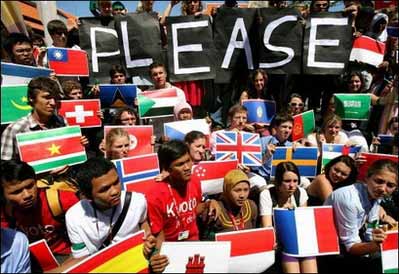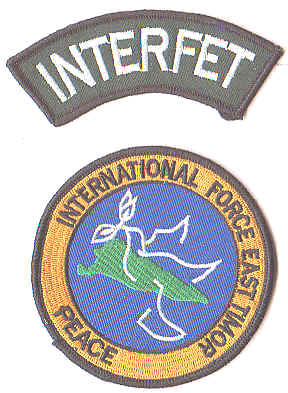 The UN Office for the Coordination of Humanitarian Affairs has a very dry definition of a famine. More than a third of children must be suffering from acute malnutrition. Two adults or four children must be dying of hunger each day for every group of 10,000 people and the population must have access to well below 2,100 kilocalories of food per day. On 20 July, the UN decided two regions of southern Somalia met those criteria, the lower Shabelle and Bakool regions. A prolonged La Nina has led to one of the driest October-December rainy seasons ever, the second consecutive such poor season and very poor livestock production has also contributed to the crop failure which led to the drought which has led to the famine.
The UN Office for the Coordination of Humanitarian Affairs has a very dry definition of a famine. More than a third of children must be suffering from acute malnutrition. Two adults or four children must be dying of hunger each day for every group of 10,000 people and the population must have access to well below 2,100 kilocalories of food per day. On 20 July, the UN decided two regions of southern Somalia met those criteria, the lower Shabelle and Bakool regions. A prolonged La Nina has led to one of the driest October-December rainy seasons ever, the second consecutive such poor season and very poor livestock production has also contributed to the crop failure which led to the drought which has led to the famine.A new UN regional overview said the famine is likely to spread to the rest of the region. The region is suffering severe food insecurity due to drought and high food prices and there are significant refugees on the move from Somalia. The trigger for the move of tens of thousands is directly attributable to the drought but also the 20 year conflict in southern Somalia which has hindered access for humanitarian agencies.
Now those agencies are struggling to cope with the influx of Somali refugees in Ethiopia and Kenya. Malnutrition and mortality rates are alarmingly high in many parts of the region. The OCHA estimates 12.4 million people are in need of help in Djibouti, Ethiopia, Kenya and Somalia. One quarter of Somalia’s 7.5 million are displaced with 3.7 million needing assistance. A further 4.8 million in Ethiopia and 3.7 million in Kenya also need help.
Feeding over 12 million people is not easy in war torn Horn of Africa but that is the task UN food agency WFP has set itself. Large parts of Djibouti, Ethiopia, Kenya, Somalia and Uganda are suffering in a drought that is likely to continue to next year and with several conflicts in the region, the WFP they barely reached 40 per cent, leaving six million malnourished people who are slowly starving to death. Airlifts have started to Mogadishu and the south at the heart of the famine, with support also arriving in the camps in the border towns of Kenya and Ethiopia.
Dadaab in Kenya is getting 1,300 new arrivals every day while Dollo Ado in Ethiopia has taken in 54,000 this year with half the children malnourished. CARE operates three refugee camps in Dadaab which are home to almost 400,000 refugees, mostly from Somalia. Thos arriving suffering from malnutrition and medical problems are referred to supplementary and therapeutic feeding programs and stabilisation units in camp hospitals. Families are provided with two weeks' worth of food rations and other essentials including tents, kitchen sets, firewood and fuel-efficient stoves while awaiting registration and access to general food distributions.
The situation will worse before it gets better. The current food security emergency across the region is expected to persist at least for the coming three to four months with the number of people in need of urgent aid increasing by as much as a quarter. The crisis in southern Somalia is expected to continue to worsen through 2011, with the entire south slipping into famine. This deterioration is likely given the very high levels of both severe acute malnutrition and under-five mortality in combination with expected worsening pastoral conditions, a continued increase in local cereal prices, and a below-average crop harvest.
Australian foreign minister Kevin Rudd has just returned from the region and he said the international community has a double challenge. Firstly to ensure UN agencies have enough funding to deal with the crisis before it becomes a catastrophe; and secondly to give UN humanitarian agencies enough flexibility to make sure people get to the aid despite the war zone.
In the medium term, OCHA says interventions to rebuild and support livelihoods will be critical. “Securing long-term food and nutrition security in the Horn of Africa requires focussing on a range of issues affecting the region, including conflict, preservation of humanitarian space, nutrition, disaster risk reduction, health and education services, and climate change adaptation,” the OCHA said. “Building resilience in the agricultural sector will be essential to avoid recurrent food security crises in this region.”

























